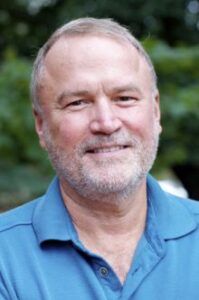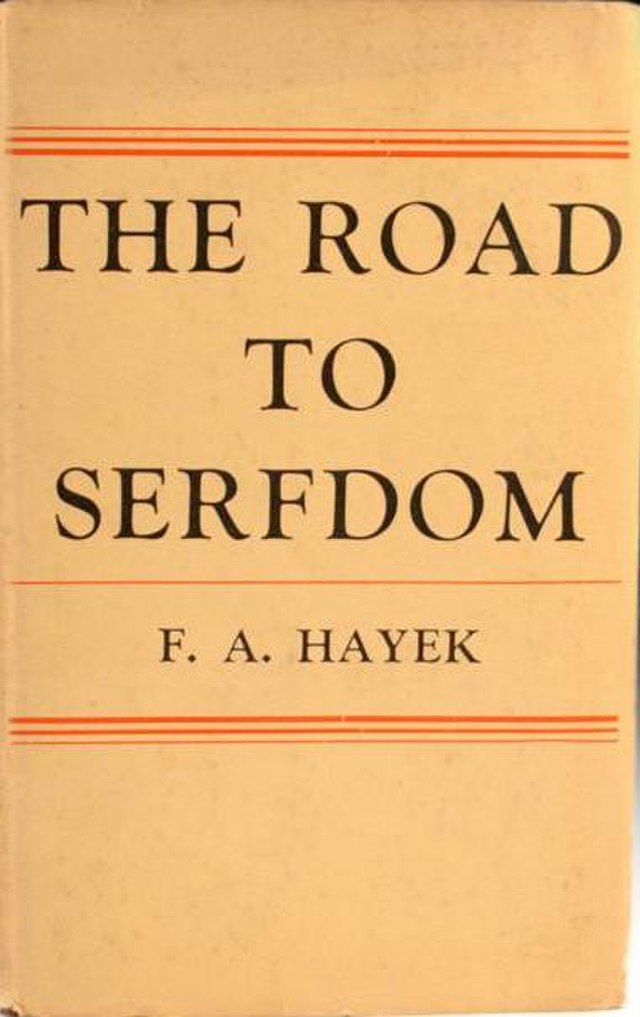A little over 30 years ago, Professor Bruce Caldwell discovered his passion for Austrian economics and the history of Nobel Prize winner Friedrich Hayek. Much like the start of any true passion project, Caldwell just needed the right introduction.
In the late 1980s, Caldwell had been teaching economics at the University of North Carolina Greensboro where he had recently written a paper on Hayek, and as a result, he was starting to become interested in the ideas and history surrounding the Austrian School of Economics. Fortunately for Caldwell’s new budding interest, it was around this same time that Duke University acquired the founder of Austrian Economics Carl Menger’s papers.
 “[Duke] invited me to direct a conference that would celebrate the acquisition of the papers and would have a conference volume that came out of it with papers on Menger’s work,” says Caldwell. “And I just got fascinated with the Austrian School at that point.” For Caldwell, this conference would prove impactful by further inspiring his research and establishing his relationship with Duke.
“[Duke] invited me to direct a conference that would celebrate the acquisition of the papers and would have a conference volume that came out of it with papers on Menger’s work,” says Caldwell. “And I just got fascinated with the Austrian School at that point.” For Caldwell, this conference would prove impactful by further inspiring his research and establishing his relationship with Duke.
His newfound inspiration took form in the challenge of writing a book on Hayek, one that would explore the origins of Hayek’s ideas within the Austrian School of Economics. The research necessary for a book of such magnitude would naturally require funding.
In the summer of 1990, Caldwell received a grant administered through the Institute for Humane Studies and the John William Pope Foundation to assist in research for his book. Through the grant, Caldwell was able to focus his time and immerse himself in the ideas.
“That first grant was thirty years ago, and it really did start me on my career of being interested in Hayek’s contributions to economics and social theory more broadly.”
—Bruce Caldwell
Receiving that initial grant was a launching point for Caldwell’s prolific career researching, contributing to, and publishing works on the multi-faceted writings of Hayek, and eventually led to him serving as the General Editor of the Collected Works of F.A. Hayek.
Through this process, Caldwell published Hayek’s Challenge: An Intellectual Biography on F.A. Hayek and subsequently began to work on a family-authorized biography. Working with co-author Hansjörg Klausinger, who was located in Vienna, Austria, the two began to compile resources, family letters, various university and school documents, and more to aid them in their research.
“It became such a large project that we did think we needed to have two volumes,” says Caldwell. “We were pretty well done with the first volume and I wanted to go out to the Hoover Institution, where Hayek’s papers are, to start the research for the second volume.”
Nearly 30 years after that first grant helped Caldwell on his career path, he sought support from IHS again, this time through the Sabbatical Research Fellowship in which he was a 2019 recipient.
“It really would have been a stretch to afford going to Palo Alto for a year to work in the archives without that grant. I’m a research professor at Duke; I direct a center, but because I’m a research professor that means I’m not a tenured professor. I have a five-year contract, and I don’t have a sabbatical leave, so I had to take a leave of absence for a year from Duke.”
—Bruce Caldwell
Despite the onset of COVID-19, Caldwell was able to make immense strides in his research for the second volume of the biography, including receiving access to new documents and other materials the Hoover Institution had recently acquired. Caldwell mentions that the trip was very useful, “in terms of getting a lot of work done in writing things that will now be in the first volume and getting research done that will allow me to do work on the second volume.”
Some of that research has helped to spark a new project for Caldwell, working to publish the proceedings from the first Mont Pelerin Society meeting. Poised to celebrate its 75th anniversary in 2022, the Mont Pelerin Society was initially a meeting set up by Hayek of renowned economists, historians, and philosophers, and included Institute for Humane Studies founder “Baldy” Harper.
According to Caldwell, the meeting’s attendees were concerned about the future of the world at “a very, very dark time.” In a time before the Marshall Plan had been instituted, Europe was unstable and in turmoil. “Those two years were horrible for the countries that were occupied by either the east or west,” he says.
Caldwell plans to publish his research and work on the 1947 Mont Pelerin proceedings in conjunction with the anniversary.
In addition to his research and works on Hayek, Caldwell currently serves as director of the Center of Political Economy at Duke and as a research professor of economics. He founded and spearheaded the launch of the center after seeing the potential for overlap between the study of Western civilization and the history of economic thought.
“History of economic thought is something that as historians retire, they are not replaced by other historians of economic thought, typically. They get replaced by econometricians or labor economists or some other specialization. So, the idea behind founding the center was to try to push against that trend and try to provide a place where people who wanted to do research or to teach in the history of economic thought would have a place to do that.”
—Bruce Caldwell
The center offers fellowship programs, workshops, lunch seminars, and an annual summer institute, all aimed at graduate students in economics programs or similar fields. “It’s a great way for people to get a leg up on their early-stage career,” says Caldwell. “We give [students] a short course in the history of economic thought… We’ve been running those for ten years, so there’s a lot of people who have gone through our program.”
Caldwell’s contributions in fostering classical liberal ideas can be seen throughout his research and the work he’s doing through the Center of Political Economy. His career creates a ripple effect that echoes over three decades and spans several publications. Caldwell’s partnership with IHS reflects one of the numerous examples of faculty helping to make an impact in the academy at large and highlights the importance of community among scholars.
“Well, my relationship with IHS, as I said, goes back quite a ways, but in addition to the very generous support that you’ve given me for my research, I also for a while was involved in evaluating students who were getting grants to do graduate work and I actually later came to know some of those people in various ways as they went on in the profession, and I just think that you do a wonderful job in supporting scholars whose work is interesting and vital.”
—Bruce Caldwell
“I’ve had a very happy relationship with IHS, and I really appreciate the support. It’s been wonderful.”
